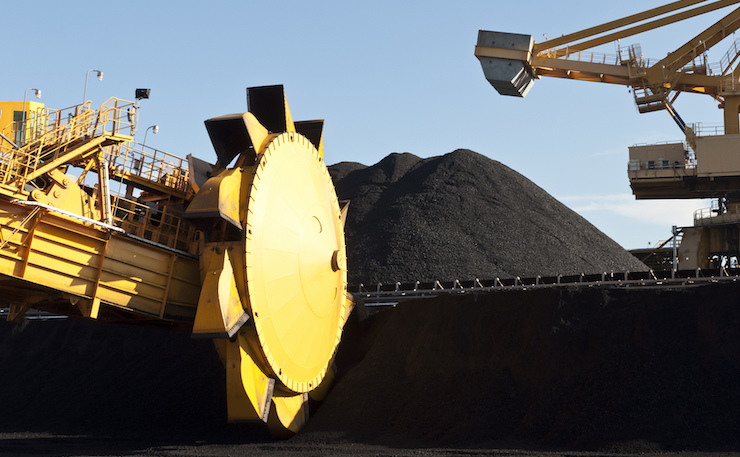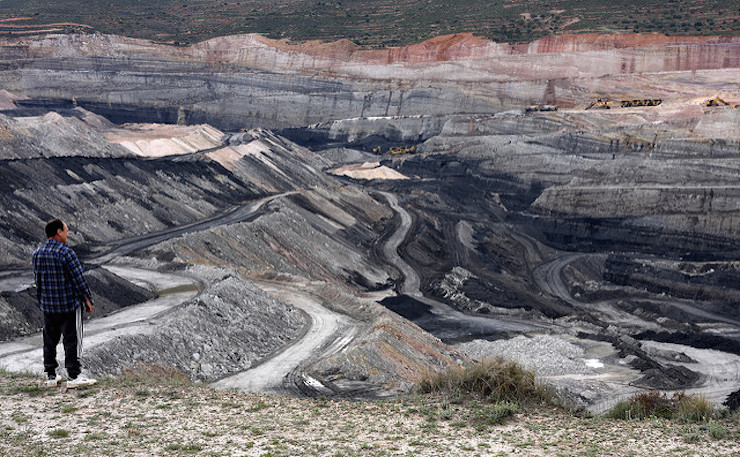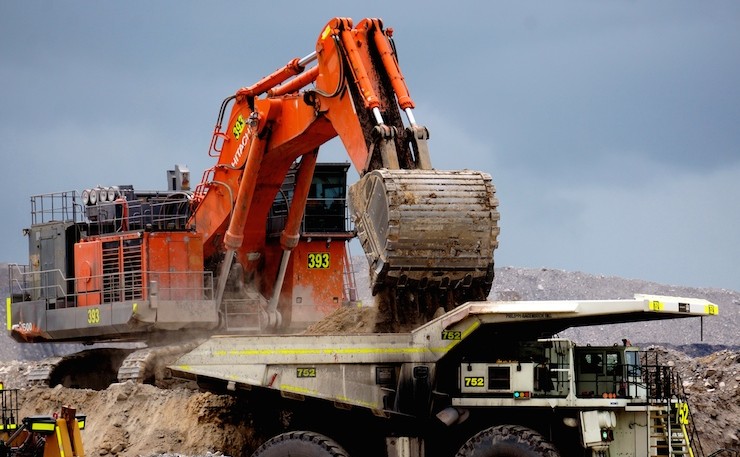Conservationists have challenged the so-called ‘drug dealer’s defence’, which coal companies often use to counter claims the Australian industry should be held responsible for the climate change it inherently creates.
A community group known as Coast and Country challenged the approval of the Alpha Coal Mine in the Queensland Court of Appeal yesterday, arguing that the state government did not give proper weight to its climate change impacts.
The argument relates to two pieces of state legislation, and is essentially over whether the carbon emissions created when coal from Queensland is burnt overseas should be counted as having a direct and detrimental impact on the domestic environment.
The mine is part of a controversial push to expand coal production into the untapped Galilee Basin, which scientists have described as a ‘carbon bomb’ that can’t be exploited if the world is to keep global warming to less than two degrees.
The case is the latest in a series of legal challenges, with Coast and Country now appealing a Supreme Court ruling. “The focus is very much on the ‘substitute argument,’” said environmental lawyer Jo-Anne Brag, the Chief Executive Officer of the Environmental Defenders Office Queensland.
“Lower courts accepted that the climate change impacts of this Alpha mine were zero, and so the harm would be zero,” she said. “But they came to that conclusion – incorrectly, we say – by assuming that if this mine didn’t go ahead then another mine somewhere else would, and so the damage would be the same.”

Coast and Country spokesperson Derec Davies said that “if applied to criminal law, the notion of ‘substitution’ would see an offender exonerated on the basis of the argument that ‘if I didn’t do it, someone else would'”.
Bragg argues the courts had been asked “the wrong question,” and “the impact of another mine is irrelevant”.
“It’s just as if someone tried to argue that water pollution from a proposed sewage treatment facility should not be given weight during assessment because another facility with equal water pollution impacts might be built somewhere else instead,” she said.
“The fact remains the proposed facility would still have serious impacts, and that those impacts need to be considered and assessed. As far as it’s relevant under the law, it’s important to look at the true and correct impacts of these proposed mines.”
In short, the argument goes: No matter where the coal is burnt, the damage it does to Queensland’s environment remains, and that should be considered in full by the approval authorities which are responsible for protecting it from harm.
This logic is an anathema to the Australian coal industry, which has previously relied on the current interpretation of Queensland legislation to avoid having the carbon emissions created by its product held against it in the approvals process.
Adani, the country’s most controversial miner, has previously made a similar argument in court to defend its massive Carmichael Coal Mine. The case against Alpha should finally put the issue to bed – in Queensland, at least – because it’s being heard in the state’s highest court.

The Alpha project is owned by GVK Hancock, a company in which mining mogul Gina Rinehart has a significant stake. If it proceeds, the Alpha mine would extract more than 30 million tonnes of coal each year for at least three decades.
It is one of at least nine mines proposed for the Galilee Basin, which has been the frontline for anti-coal activists who see the area as a ‘carbon bomb’ that must be diffused. If it’s not, and the mines go ahead, they could wind up creating more emissions each year than whole countries like Canada, South Africa or the United Kingdom.
A judgement is expected in the coming months. If it comes down against GVK Hancock, the company would be forced to seek new environmental approvals, and the carbon emissions Queensland coal mines implicitly create would be more closely scrutinised in the future.
GVK Hancock has been contacted for comment.
Donate To New Matilda
New Matilda is a small, independent media outlet. We survive through reader contributions, and never losing a lawsuit. If you got something from this article, giving something back helps us to continue speaking truth to power. Every little bit counts.





